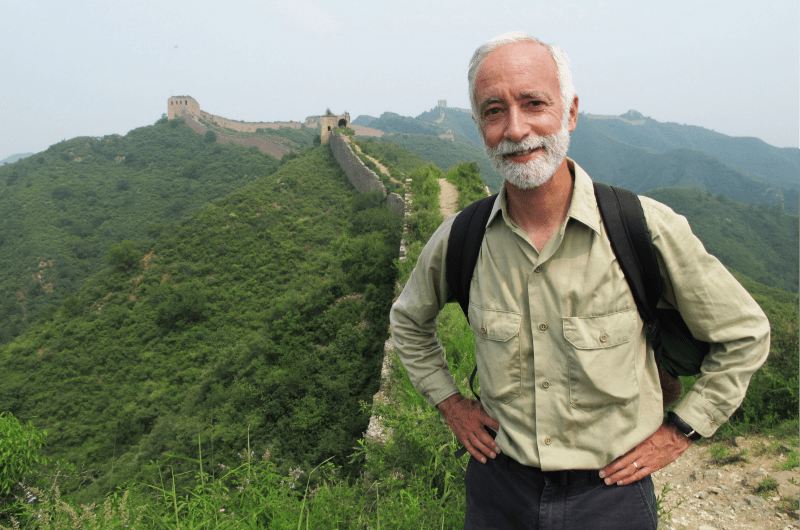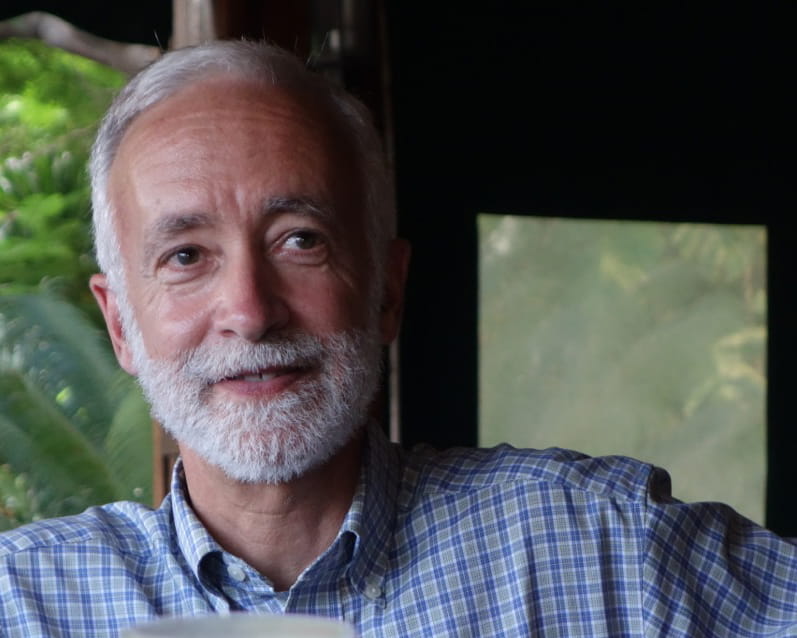Employee Spotlight: Robert McCracken Peck
 By Katie Clark
By Katie Clark

- Drexel’s Hydration Stations Cut Plastic Waste and Costs
- Philadelphia Films With Drexel University Cameos
- Drexel University Receives Higher Education Excellence and Distinction (HEED) Award for Its Culture of Belonging
- New Research Recommendations for Supporting Autistic Adults to Ensure Their Communication Success

Right there, at the intersection of science, art and the humanities, is Bob Peck’s happy place. He’s made a home in this unusual niche for the past four decades and feels like one of the luckiest people alive.
As senior fellow of the Academy of Natural Sciences, Peck over the years has been an explorer, adventurer, historian, photographer, writer, documentary film narrator, lecturer, collector, curator and more. He has traveled to the far reaches of the globe to document the field research of Academy scientists, a role he took on after realizing there were many important stories to be told.
“I would sit at lunch every day and hear amazing stories from scientists just back from their work in the field, and I realized that this was something the public rarely hears,” Peck said.
In the 19th century, it was traditional for artists and writers to accompany scientists on expeditions. In the 1980s, Peck proposed to resurrect that, and later that year set off for Nepal on behalf of the Academy.
“What I tried to do was make the general public understand how this scientific work was relevant to them and talk about the human stories behind the science: the people involved, how they do their work,” Peck said. “The science we do is critical, but what is almost as interesting to the public is how it’s all done, and what is accomplished in the end. We always strive for an end result, but it’s the road to get there that I love to tell people about.”
Peck naturally soaked in the beauty and mystery of the natural world on his travels, but not all of it was pleasant.

“The most memorable and frightening experience,” he said, “was being targeted for attack by hostile Indians while on an ornithology expedition in Ecuador. The indigenous people of the Cutucu Mountains thought we were looking for gold, not birds, and decided we needed to be killed. It was an easy mistake for them to have made, but not a good one for us.”
But, Peck clarified, “I loved every expedition I was on, every one of them — even when they were dangerous, uncomfortable, difficult…that was all just part of the experience. I wouldn’t have passed them up for anything.”
One of the accomplishments of which he is most proud is “A Glorious Enterprise: The Academy of Natural Sciences of Philadelphia and the Making of Science,” the first complete history of the Academy, which he co-authored with Patricia Tyson Stroud in 2012 to help document the institution’s bicentennial. It’s a project that took three years to produce, but more than 30 years to research.
His newest book, “The Natural History of Edward Lear,” with a foreword by Sir David Attenborough, will be published this month. Peck has a few other projects and ideas for books in the works and still hopes to travel to southeast Asia, especially Vietnam and Cambodia. “I would love to see how those countries have healed themselves, both environmentally and socially,” he said.
Retirement, however, is not on the agenda. “Retire? Oh, I hope not,” he said. “Some people count down the days to retirement, but I’d be terribly sad if I had to retire. There is still too much to do.”
In This Article
Drexel News is produced by
University Marketing and Communications.